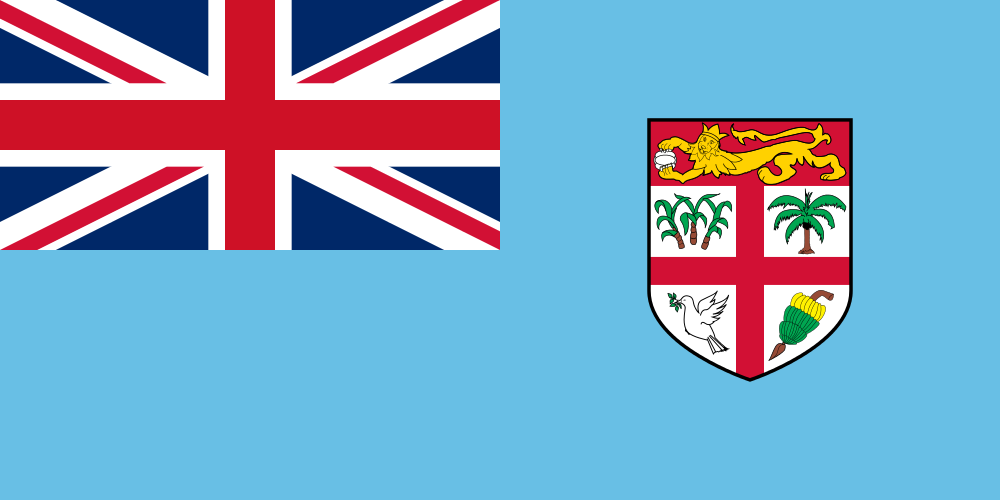Currency in Fiji: FJD Send & Spend FX Guide
 Resources for Expats, Travelers and Entrepreneurs Navigating Life and Trade in Fiji with the Fijian dollar.
Resources for Expats, Travelers and Entrepreneurs Navigating Life and Trade in Fiji with the Fijian dollar.

What's in this Fiji currency guide?
What currency is used in Fiji?
The official currency of Fiji (country code: FJ) is the Fijian dollar, with symbol F$ and currency code FJD.
What is a good Fijian dollar exchange rate?
The BestExchangeRates.com currency comparison table below helps you see the total cost of your currency transaction by showing the exchange rates offered by different providers. It also makes it easy to spot potential savings from market-leading FX services compared to bank rates.
To see a full list of rates, enter your transaction type, currencies and amount then click ‘GET RATES’:
Loading rates...
|
|
|
Good things to know about the Fijian dollar
Here are some key facts about the Fijian Dollar (FJD) relevant for travelers, expats, and business owners:
1. Currency Code and Symbol: The official currency code is FJD, and it is symbolized as FJ$ or simply $. (en.wikipedia.org)
2. Subdivisions: The Fijian Dollar is divided into 100 cents. (en.wikipedia.org)
3. Denominations: Coins are available in 5c, 10c, 20c, 50c, $1, and $2. Banknotes come in $5, $10, $20, $50, and $100 denominations. (en.wikipedia.org)
4. Issuing Authority: The Reserve Bank of Fiji is responsible for issuing and regulating the Fijian Dollar. (en.wikipedia.org)
5. Design Features: Recent banknotes feature images of local flora and fauna, such as the Kulawai bird on the $5 note and the Tagimoucia flower on the $20 note, reflecting Fiji's cultural and natural heritage. (fijitravel.org)
6. Exchange Rate System: The Fijian Dollar operates under a managed floating exchange rate system, with its value determined by market forces and occasional interventions by the Reserve Bank of Fiji to maintain stability. (babypips.com)
7. Economic Significance: Tourism is a major contributor to Fiji's economy, with the Fijian Dollar facilitating transactions in this sector. (investopedia.com)
These facts provide a concise overview of the Fijian Dollar, offering practical information for those engaging in financial activities in Fiji.
For more FJD information check out our selection of Fijian dollar news and guides.
Frequently Asked Questions
What currency should I use in Fiji?
The domestic currency in Fiji is the Fijian dollar.
What is the Fijian dollar currency code and symbol?
The three letter currency code for the Fijian dollar is FJD — symbol is F$.
What does the Fijian dollar look like?
Here is an example Fijian dollar banknote:

Which countries use the Fijian dollar?
It is the domestic currency in Fiji.
Is the Fijian dollar a closed currency?
No, the Fijian dollar is freely available and convertible. See guide: What is a closed currency?
What are equivalent amounts of USD and FJD?
Here are some popular conversion amounts for USD to FJD (US dollar to Fijian dollar)*.
*Converted at the current USDFJD interbank exchange rate. Calculate actual payout amounts for Send Money and Travel Money exchange rates.

Travel money for Fiji
Using Wise for Fijian dollar travel money is a smart choice for savvy travelers. With its competitive exchange rates and low fees, Wise allows you to convert and manage multiple currencies effortlessly.
Be careful when using your own bank's Debit/Credit Card, as your bank may also charge an extra 3% as an “Overseas Transaction Charge” plus “Overseas ATM” fees for withdrawing cash on top of the standard Visa/Mastercard 2.5% from market mid-rate.
For card purchases, if you are offered a choice of currencies always select to Pay in Fijian dollar otherwise you will typically get much worst dynamic currency conversion (DCC) exchange rates.
If you really want Fijian dollar cash before departure, you can save money by ordering online. You generally get better rates and can pick up the FJD cash locally or even on travel day at the airport.
Fiji: Travel Guide
Traveling to Fiji requires careful financial planning to ensure a smooth and cost-effective experience. Here's a comprehensive guide to help you navigate currency considerations and manage your money effectively during your visit.

Fiji is a popular travel destination known for its beautiful beaches, crystal clear waters, and lush tropical landscapes. It is made up of over 300 islands, many of which are uninhabited, making it a great place to explore and relax. Visitors can enjoy activities such as swimming, snorkeling, diving, and fishing, as well as hiking and exploring the local culture.
Is Fiji cheap?
Fiji is generally considered to be a budget-friendly destination, with relatively low costs compared to other popular tropical vacation spots. Accommodations, food, and transportation are generally less expensive than in places like Hawaii or the Caribbean.
That being said, how cheap or expensive a trip to Fiji is can depend on several factors such as the time of year you visit, the type of accommodation you choose, and your activities and excursions.
For budget travellers, there are many affordable options for accommodations such as hostels, budget hotels, and homestays. Eating out can also be relatively cheap, with local restaurants offering meals for under $10. Public transportation is also relatively affordable, with buses and ferries available at low prices.
However, if you want to stay in luxury resorts, go on expensive excursions or enjoy high-end dining, it could be quite expensive.
Overall, Fiji can be a relatively affordable destination, but it's best to research and plan ahead to make the most of your budget.
Travel tips for Fiji
Here are some travel tips for visiting Fiji:
Pack for the weather: Fiji is a tropical destination with hot and humid weather, so pack lightweight, breathable clothing and bring plenty of sunscreen.
Get a good guidebook: A good guidebook can provide useful information on things to see and do, as well as give you an idea of what to expect in terms of weather and culture.
Research your accommodation options: Fiji has a wide variety of accommodation options, from budget-friendly hostels to luxury resorts. Research what type of accommodation would suit you best and book in advance to avoid disappointment.
Be mindful of cultural customs: Fiji is a culturally diverse country, with strong Fijian, Indian and Chinese influences. Be respectful of local customs and dress modestly when visiting villages or temples.
Be prepared for the weather: Fiji can experience heavy rain and tropical storms during the rainy season, so be prepared for inclement weather and pack accordingly.
Try local food: Fiji has a diverse cuisine with a mix of Fijian, Indian, and Chinese influences. Try local dishes such as kokoda (raw fish marinated in lime juice) or roti (Indian-style flatbread) to get a taste of authentic Fijian food.
Take advantage of outdoor activities: Fiji is known for its beautiful beaches and crystal clear waters, so take advantage of activities such as swimming, snorkeling, diving, and fishing.
Be aware of your valuables: As with any tourist destination, it is important to be aware of your valuables and to keep them safe. Be mindful of your belongings, especially when in crowded areas.
Learn some basic Fijian: While English is widely spoken in Fiji, it is always polite to learn some basic Fijian phrases such as "bula" (hello) or "vinaka" (thank you) to show respect for the local culture.
Be Prepared for the weather: Fiji's weather can be unpredictable, so pack layers and be prepared for rain. Also, don't forget your mosquito repellent, as the mosquitoes can be heavy during certain seasons.

Everyday Costs in in Fiji
How much does it really cost to live, work, or travel in Fiji? Here's what to expect for daily expenses and expat living.
Currency Guide to Fiji (ISO Code: FJ)
When planning a one-week mid-range stay in Fiji, travelers should budget approximately FJD 2,500 to FJD 3,500 (around USD 1,100 to USD 1,550) to cover accommodation, meals, activities, and transportation. Here’s a quick overview of typical daily expenses in Fijian dollars (FJD) to give you a sense of what to expect:
- 🍽️ Meal at a local restaurant: FJD 20-40
- ☕ Coffee: FJD 4-8
- 🚌 Public transport fare: FJD 1.50-5
- 📱 Prepaid SIM card: FJD 25-40
- 🏨 Budget hotel or Airbnb: FJD 100-200 per night
In terms of overall affordability, Fiji can be considered relatively expensive compared to the United States and average when compared to Australia. In the U.S., travelers often find meals and accommodations to be slightly less expensive, while in Australia, prices for daily essentials in Fiji are typically on par.
Expats in Fiji: Living Costs and Tips
For expats settling in Fiji, the typical monthly living costs can range from FJD 2,500 to FJD 4,500 (USD 1,100 to USD 2,000), depending on lifestyle choices. This generally includes rent for a decent apartment, utilities, groceries, and leisure activities. When managing finances, it’s crucial to stay informed about banking options. Local banks offer basic services, but using international credit cards is also commonplace, particularly in tourist areas.
For sending or receiving money, online transfer services like Wise or OFX often provide better exchange rates and lower fees than traditional banks. It's usually advisable to exchange a small amount of cash locally for immediate expenses while relying on these transfer services for larger transactions, as they can minimize the overall cost of managing your finances abroad. In summary, expatriates in Fiji will find it advantageous to balance local currency use with online financial solutions for the best experience.
USD/FJD Market Data
The below interactive chart displays the USD/FJD change and UP📈 DOWN📉 trends over the past 1 Year.

Recent Fijian dollar Market News
Date: 2 March 2026
Key Developments Affecting the Fijian Dollar (FJD):
Economic Growth and Inflation
- 2026 Economic Forecast: The Reserve Bank of Fiji projects the economy to grow by 3% in 2026, supported by increased visitor arrivals. (fbcnews.com.fj)
- Inflation Rate: Inflation for 2025 was 0%, with a projected 2.5% inflation rate for 2026, barring external shocks. (fbcnews.com.fj)
Currency Developments
- New Banknotes: In January 2026, Fiji introduced new polymer banknotes featuring updated designs and enhanced security features. (coinworld.com)
International Relations
- China-Fiji Relations: In February 2026, Fiji reaffirmed its commitment to strengthening cultural and economic ties with China during the Chinese New Year celebrations. (usp.ac.fj)
Upcoming Events
- Island Nations Currency & Payments Summit: Scheduled for October 26-28, 2026, in Denarau Island, Fiji, this summit will focus on currency and payment systems among island nations. (10times.com)
These developments may influence the FJD's exchange rate through economic performance, international relations, and financial policy changes.
For more FJD information read our News and guides to the Fijian dollar.
Send Money to Fiji - Best Rates
To get a good (and fair) exchange rate when sending money to Fiji you need to find and compare exchange rates for International Money Transfers (IMTs).
The available FX rates for sending money abroad can be very different to the mid-market (wholesale) rate which you see reported online and in the News.
You should especially compare your own bank's exchange rates to those available from Money Transfer specialists to see how much you can save - we make that calculation easy in the below table.
Get a better deal for foreign transfers to Fiji
When sending money to Fiji it’s important to compare your bank’s rates & fees with those we have negotiated with our partner money transfer providers. To get a better deal you should follow these 4 simple steps :
- Open an account with a BER reviewed FX provider (id docs may be required)
- You specify the local or Fijian dollar amount you want to transfer
- Make a local currency domestic transfer for the requested amount to the provider's bank account in your country
- Once your funds are received by the provider the converted FJD amount will be transfered to the recipient account you specify in Fiji.
Use the above calculator to compare the exchange rates of FX specialist providers rates versus your bank's standard rates you can hopefully save around 5% and maybe more - end result is more Fijian dollar deposited into the recipient bank account and less margins and fees kept by the banks!

Managing money while living and working in Fiji
Managing your money effectively while living and working abroad can be challenging, but there are several steps you can take to ensure that your finances are in order.
Understand Fijian dollar currency exchange rates: Exchange rates can have a big impact on your finances, so it is important to keep an eye on the FJD exchange rate and consider using a money transfer specialist or a credit card that does not charge foreign transaction fees to get the best exchange rate.
Use a local Fijian dollar bank account: A local FJD bank account can make it easier for you to manage your finances and pay bills while you are in Fiji. It may also be more convenient to use a local FJD bank account to make purchases and withdraw cash.
Research local laws and regulations: It is important to understand the local laws and regulations that apply to financial transactions in Fiji. This can help you avoid legal issues and ensure that you are complying with local requirements.
Consider the tax implications: It is important to understand the tax implications of living or doing business in Fiji. This can help you plan your finances and ensure that you are paying the correct amount of tax.
Seek financial advice: If you are unsure of how to manage your finances in Fiji, it is a good idea to seek the advice of a financial professional who is familiar with the local financial system. This can help you make informed decisions and avoid financial pitfalls.
We have put together some key points to help managing your money effectively, you can reduce financial stress and enjoy your experience living or doing business in Fiji.

What's the expat life like in Fiji
Fiji is a popular destination for expats, particularly for those looking for a more laid-back and relaxed lifestyle. The cost of living is relatively low, and the Fijian people are known for their friendly and welcoming nature. The country offers a good quality of life and is a great place to raise a family.
It is important to note that Fiji is located in the Southern Hemisphere, so seasons are opposite to those in the Northern Hemisphere. Also, while the official language is English, Fijian and Hindustani are also widely spoken.
Is Fiji a good place to retire to?
Fiji is considered a popular destination for retirees due to its tropical climate, beautiful beaches, and friendly locals. The cost of living is relatively low, and healthcare is considered to be good. Additionally, there are a variety of activities available for retirees such as golfing, fishing, and diving. It's always a good idea to visit a place before making a decision to move there.
How is the economy in Fiji?
Fiji's economy is primarily based on tourism, agriculture, and remittances from Fijians working abroad. Tourism is the largest foreign exchange earner, accounting for around 30% of the country's GDP and providing employment for around 40% of the population. Agriculture, including sugarcane, is also a major contributor to the economy, although it has been in decline in recent years.
The Fijian economy has seen steady growth in recent years, with GDP growing by around 3-4% per year on average. However, the COVID-19 pandemic has had a significant impact on the economy, with tourism coming to a standstill, and many Fijians losing their jobs or facing reduced incomes. The country's GDP contracted by around 10% in 2020, and the unemployment rate increased to around 14%.
The government has taken measures to support the economy during the pandemic, including providing financial assistance to businesses and individuals, and implementing infrastructure projects to create jobs. In 2021, Fiji's economy is expected to recover and grow again, but it is uncertain how much the pandemic will affect the recovery.
The Fijian government is working to diversify the economy and reduce dependence on tourism and agriculture. This includes developing new industries such as technology, fisheries and aquaculture, and renewable energy.
In general, the Fijian economy is small, open and dependent on external factors, such as tourism, agriculture and remittances, which can make it vulnerable to external economic shocks.
